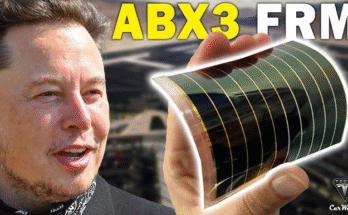In a groundbreaking development that promises to revolutionize the energy storage sector, Chinese engineers have unveiled a new generation of swappable lithium-ion batteries. This innovation could significantly alter the landscape of electric vehicles (EVs), renewable energy storage, and consumer electronics, sending ripples through the entire industry.

The Innovation: What Are Swappable Lithium-Ion Batteries?
Swappable lithium-ion batteries are designed for quick replacement at designated stations, allowing users to exchange a depleted battery for a fully charged one in a matter of minutes. This technology addresses two major challenges facing the EV market: long charging times and range anxiety.
The newly developed batteries boast enhanced energy density, faster charging capabilities, and improved longevity compared to their predecessors. This makes them ideal not just for electric vehicles but also for applications in renewable energy systems and portable devices.
A Game Changer for Electric Vehicles
One of the most significant impacts of swappable batteries will be on the EV market. With traditional charging methods often taking hours, the ability to quickly swap batteries could encourage more consumers to adopt electric vehicles. This shift could lead to a dramatic increase in EV sales and a corresponding decrease in greenhouse gas emissions.
Chinese EV manufacturers are already eyeing this technology as a means to gain a competitive edge. Major companies like BYD and NIO are expected to integrate swappable batteries into their vehicle designs, potentially setting new industry standards.
Economic Implications: A New Industry Standard?
The introduction of swappable lithium-ion batteries could create a new economic ecosystem surrounding battery swapping stations. This infrastructure would require significant investment but could generate thousands of jobs in manufacturing, installation, and maintenance.
Analysts predict that if this technology gains traction, it could lead to a shift in how batteries are marketed and sold. Instead of purchasing batteries outright, consumers might opt for subscription models, paying a monthly fee for access to a network of swappable batteries.

Environmental Impact: A Step Towards Sustainability
Beyond the economic implications, the environmental benefits of swappable batteries are substantial. By facilitating faster adoption of electric vehicles, this technology could help accelerate the transition to cleaner transportation. Additionally, the ability to efficiently manage battery recycling and reuse could reduce waste and promote sustainability.
“Swappable batteries could change the game for renewable energy storage as well,” said a prominent environmental scientist. “They can store energy from solar and wind power, making it more accessible and reliable.”
Global Reactions: A Wake-Up Call for Competitors
The announcement has sent shockwaves through the global energy and automotive sectors. Competitors in the U.S. and Europe are now under pressure to innovate and respond to this disruptive technology. Companies that fail to adapt may find themselves at a disadvantage in an increasingly competitive market.
“China’s advancement in battery technology serves as a wake-up call,” remarked an industry expert. “Other nations must accelerate their own research and development efforts to keep pace with these innovations.”
Conclusion
China’s development of swappable lithium-ion batteries marks a monumental shift in the energy and automotive industries. By addressing key challenges associated with electric vehicles and renewable energy storage, this technology has the potential to reshape consumer behavior and industry standards.
As the world watches closely, the race to adopt and implement this innovation will likely define the future of transportation and energy. The question remains: will other countries rise to the challenge, or will China lead the charge in this new era of battery technology? The answer could determine the landscape of global energy for years to come.


